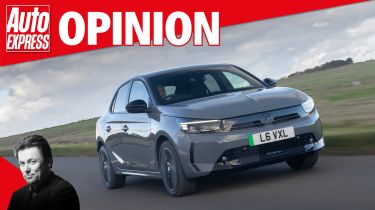‘Electric cars could end up like Betamax’
Mike Rutherford thinks electric cars could end being priced out of the market - just like Betamax did almost 50 years ago

Guess what? It’s OK to constructively criticise things you love. A few polite, productive home truths never hurt anyone or anything – the pure-electric vehicle included. For the record, since driving my first one in 1982, I’ve been a fan. Anti-EV? Not me.
But if politicians, manufacturers, retailers, trade associations, infrastructure organisations and others don’t acknowledge and deal with the quandaries that still dog the widespread adoption of EVs, there’s a danger that the cars will be relegated into the ‘failed product’ league – like the Betamax video recorder.
Ongoing issues for EVs revolve around perception, lack of understanding, hefty retail prices, stalling sales, infrastructure woes, and anxieties about range and resale values. Quick fixes include the auto industry and its appointed pressure groups NOT calling them BEVs (battery electric vehicles). Buyers don’t talk of wanting or having a BEV. So ditch this daft, in-house terminology and refer instead to pure-electric, 100-per cent electric, or fully electric cars. Alternatively, electric vehicles (EVs) will do. Job done.
Consumers crave more honesty about real-world range – especially in battery-sapping winter months. Also, lethargic national and local governments, National Grid and others must massively speed up the connection of working cables to just-installed public chargers.
Next up, EV manufacturers and dealers have to attract the private, non-company-car motorists who aren’t taking the EV bait. They acquire their new vehicles out of their own taxed incomes, but the vast majority (more than 91 per cent last year) ordered models with petrol or diesel tanks – largely because pure-EVs remained acutely over-priced. This at the moment in history when 100 per cent-electric cars would achieve “cost parity” with equivalent ICE models, according to Al Gore, international analysts and industry insiders.
Yet today, the cheapest pure-electric Vauxhall Corsa Design costs £32,445, while the entry-level pure-petrol version is £19,625 – making the EV 65 per cent pricier than its ICE equivalent. This is gross inequality, not parity. Also, Insurance Group 28 for the EV versus 12 for the ICE is another expensive headache. And the straw that breaks the EV’s back is the extra burden of it being one of the fastest-depreciating cars on the market, shedding more than two thirds (almost 23 grand) of its value during its first 36 months.
The manufacturer has little choice but to immediately cut the high retail prices of its EVs by thousands, and/or offer zero per cent finance, gratis home chargers, longer warranties, free servicing and guaranteed higher residual values. Rival firms also guilty of marketing EVs costing too much on the buying/leasing/insuring/residual fronts need to instantly implement their own, equally drastic measures. In the medium term, lower-spec EVs could narrow the glaring price disparities. Further into the future, newer, cheaper, more cost-effective designs, materials, batteries and other tech are imperative.
If not, EVs – which should be among the greatest consumer products – will suicidally price themselves out of the market, just as the excellent but too expensive Betamax did.
Do you agree with Mike? Let us know your thoughts in the comments section...
Find a car with the experts




